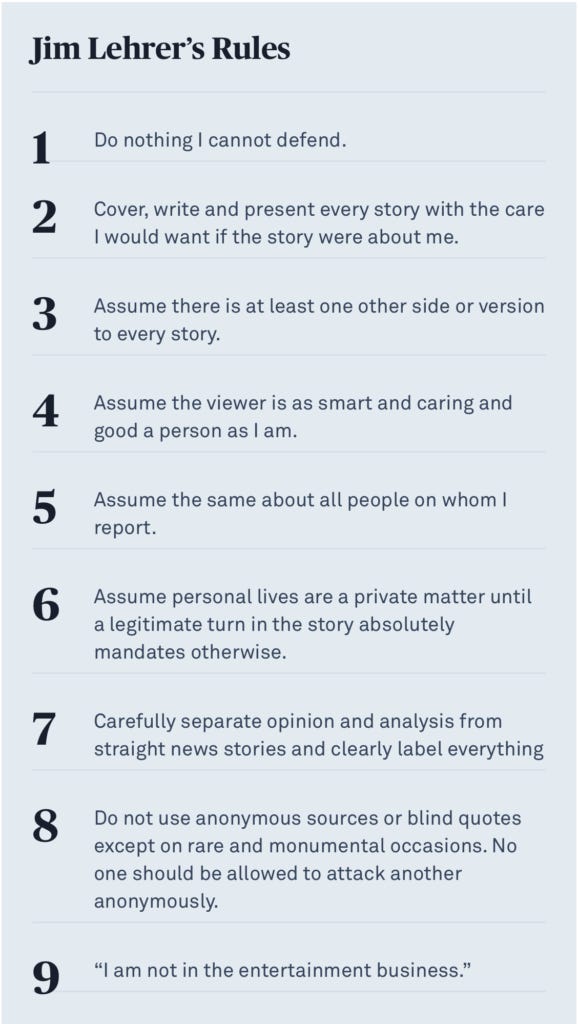I have known and worked with a number of great journalists over the past forty years. None was better than Jim Lehrer. I will never forget the day I first met him. It was in the early days of the Reagan administration. Larry Kudlow and I were camped out on the 9th floor of the New Executive Office building--the ugly brick structure across the street from the White House--building the forecast models and writing the briefings for the Reagan economic plan. A voice on the phone asked if I had time later that afternoon to do an interview on the McNeil Lehrer Report. I was shocked. I was excited. I was terrified.
What I remember most about that first interview is Jim's demeanor. He was a gentleman, soft-spoken and respectful--even to a 32 year old Forrest Gump economist. He was deeply knowledgeable about the monetary, budget, inflation and growth issues we discussed. His questions were straightforward, not tricky. He listened to my answer before asking the next question. He drilled to the bottom of each issue before moving to the next one. It felt like I was talking with the editor of a big city newspaper, not a television personality. (Jim's career began at the Dallas Morning News, where he covered the JFK assassination) After the show, I knew I had been through the wringer but it was a fair, polite and professional wringer.
I think of Jim as representing a generation of news people from Edward R. Murrow to Walter Cronkite, who viewed journalism as a calling, not a job or career. He had his own set of personal rules of conduct. You can see them in the graphic below.
In some ways, Jim Lehrer was a creature of his time. With only 3 major commercial networks and PBS, market segmentation was not possible. Each news program had to be addressed to all the viewers, not just some of the viewers, not from the left or the right but from the center. News broadcasts seemed more about building a consensus and bringing people together than driving them apart. IMHO, we could use a little more of that today.
Dr. John




